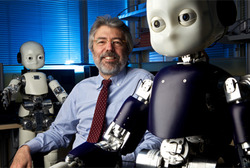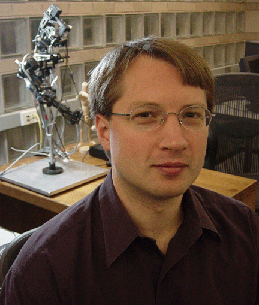Invited Speakers

Prof. Malinda Carpenter
University of St Andrews on research leave at Max Planck Institute for Evolutionary Anthropology
Malinda Carpenter is a Professor of Developmental Psychology in the School of Psychology and Neuroscience at the University of St Andrews in Scotland. She is currently on research leave in the Department of Developmental and Comparative Psychology at the Max Planck Institute for Evolutionary Anthropology in Leipzig, Germany, where she has worked since 1999. She studies social cognition and social behavior, mainly in typically-developing infants and young children, but also in apes (and, in the past, children with autism). Her research interests include imitation, participation in shared activities (joint attention, communication, collaboration), prosocial and affiliative behavior, relations with in- versus out-group members, understanding of others' mental states (intentions, attention, knowledge, and beliefs), and differences between ape and human social cognition.

Dr. Alessandro D’Ausilio
Istituto Italiano di Tecnologia
Alessandro D’Ausilio studied Experimental Psychology (1998-2003) and obtained a PhD in Cognitive Psychology from the Sapienza University of Rome in 2007 (Deartment of Psychology - Prof. Olivetti Belardinelli). During the PhD he spent extended research periods both at MIT (Brain and Cognitive Sciences Department, McGovern Institute for Brain Research - Prof. Bizzi) and the Eberardt-Karls-Universität in Tübingen (Institut für Medizinische Psychologie und Verhaltensneurobiologie - Prof. Birbaumer and Prof. Lotze). After the PhD he had a three years post-doctoral fellowship at the University of Ferrara (Neurolab - Prof. Fadiga and Prof. Craighero). Then, in 2010 he joined the Italian Institute of Technology, first as a senior post-doc (Prof. Sandini and Prof. Fadiga) and then since 2012, as a Researcher in the Robotics, Brain and Cognitive Sciences Department. He’s author of more tha 30 peer-reviewed journal papers for which has received more than 500 citations. He gave more than 15 invited talks on his research activity and received several prizes for young researcher (Italian Association of Psychology, Italian Neuropsychological Society, etc.). He currently plays a key role in the Mirror Neurons and Interaction Lab at IIT. His scientific interests revolve around the issue of sensorimotor communication via vocal and bodily movements.

Prof. Giulio Sandini
Istituto Italiano di Tecnologia
Director of research at the Italian Institute of Technology and full professor of bioengineering at the University of Genoa.
His main research interests are in the fields of Computational and Cognitive Neuroscience and Robotics with the objective of understanding the neural mechanisms of human sensorimotor coordination and cognitive development from a biological and an artificial perspective. He graduated in Electronic Engineering (Bioengineering) at the University of Genova. He has been assistant professor at the Scuola Normale Superiore in Pisa and Visiting Scientist at the department of neurology of the Harvard Medical School and at the Artificial Intelligence lab at MIT. Since 2006 he is Director of Research at the Italian Institute of Technology where he leads the Department of Robotics, Brain and Cognitive Science.

Prof. Brian Scassellati
Yale University
Brian Scassellati is a Professor of Computer Science, Cognitive Science, and Mechanical Engineering at Yale University and Director of the NSF Expedition on Socially Assistive Robotics. His research focuses on building embodied computational models of human social behavior, especially the developmental progression of early social skills. Using computational modeling and socially interactive robots, his research evaluates models of how infants acquire social skills and assists in the diagnosis and quantification of disorders of social development (such as autism). His other interests include humanoid robots, human-robot interaction, artificial intelligence, machine perception, and social learning.

Copyright (c) Yukie Nagai and Katrin Solveig Lohan All Rights Reserved.




